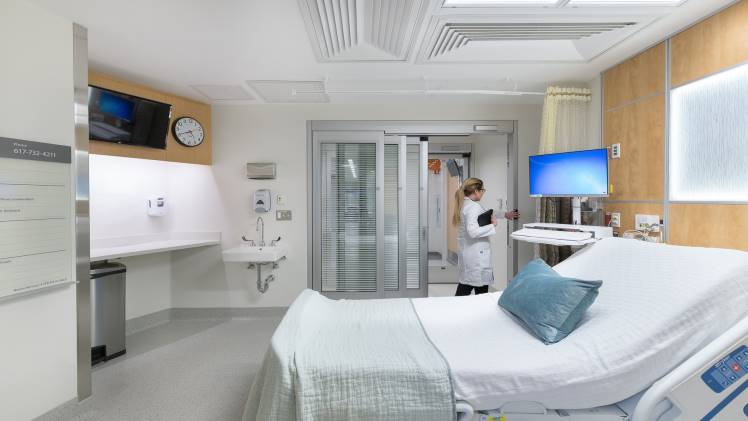Patient Liberty What To Do If You Get An Infection At A Chicago Hospital

Patients in the Chicago area may be faced with the potential for infection when receiving medical care at a hospital or other medical facility. It is important to be aware of the signs of infection and know how to respond if it occurs.
Common Types Of Infections
Infections are a common medical issue that can occur after a hospital stay. In Chicago, there are numerous types of infections patients may acquire, such as skin infections, urinary tract infections (UTIs), and respiratory infections. To prevent and treat these infections, it is important to understand their causes and available treatments.
Skin infections can occur due to bacteria or fungi entering the body through wounds on the skin. These infections can manifest in the form of cellulitis, impetigo, or other types of rashes. UTIs occur when bacteria enter the urinary system and cause bladder irritation which can lead to pain and discomfort when urinating. Respiratory infections can be caused by viruses or bacteria in the airways that cause symptoms such as coughing, fever, shortness of breath, and chest pain.
If an infection is acquired at a Chicago hospital, it is important to contact your doctor immediately for treatment advice. Depending on the type of infection, treatment may involve taking antibiotics or antiviral medications. Other methods such as wound care, and physical therapy for breathing exercises may also be necessary for some types of infection. It is also important to follow any instructions given by your doctor regarding lifestyle changes such as diet modifications or avoiding certain activities during recovery from an infection. By doing so you will help ensure a swift recovery from your infection and minimize its impact on your life.
Diagnosis And Treatment Options
It is important to seek medical attention as soon as possible if an infection is suspected. Diagnosing an infection may involve a physical examination, laboratory testing of bodily fluids, or imaging tests such as X-rays or CT scans. Once the cause of the infection has been identified, treatment can begin.
The type of treatment will depend on the type and severity of the infection. The most common treatments are antibiotics for bacterial infections, antifungal medications for fungal infections, and antiviral medications for viral infections. Other treatments may include wound care to prevent further infection and physical therapy to help with breathing exercises in cases of respiratory infections. In some cases, surgery may be necessary to help treat more serious infections.
No matter which type of treatment is prescribed by your doctor, it is important to follow their instructions carefully and take all medications as directed. Additionally, lifestyle changes such as diet modifications or avoiding certain activities during recovery can also help ensure a swift recovery from an infection acquired at a Chicago hospital. By following these instructions you will be able to minimize any discomfort and improve your overall health.
Legal Actions For Victims
Victims of hospital-acquired infections in Chicago may have the right to pursue legal action. The legal process can be intimidating and time-consuming, but it can help victims recover damages for medical expenses, lost wages, and pain and suffering. To make a claim, it is important to have evidence of negligence on the part of the hospital or medical staff that caused or contributed to the infection. This could include proof that a healthcare provider failed to follow accepted standards of care or was negligent in providing treatment.
It is important for individuals to understand their rights before proceeding with any claims or applications for assistance. Consulting with a qualified Chicago hospital malpractice attorney can help ensure that your rights are protected throughout the process and that you receive any compensation you may be entitled to under the law.
Insurance Coverage For Treating An Infection
When it comes to treating hospital-acquired infections, many patients are unaware of their health insurance coverage. The first step in understanding what is covered is to contact the health insurance provider directly. Depending on the type of plan and the state of residence, most health insurers offer coverage for treatment costs related to hospital-acquired infections. However, it is important to note that coverage may vary according to state laws and the specifics of the policy.
In addition to health insurance coverage, there are a variety of government programs that may provide assistance for individuals affected by hospital-acquired infections. These include Medicare and Medicaid, as well as other programs depending on local state regulations. These programs can provide financial assistance for medical expenses associated with treating an infection. Some states may have specific laws in place that allow victims of hospital-acquired infections to receive compensation from the facility or medical staff responsible for causing or contributing to the infection.
Knowing Your Rights As A Patient
Patients affected by hospital-acquired infections have certain rights that should be taken into consideration. It is important to note that these rights vary depending on the state and may also be affected by any applicable federal laws. Generally, patients have the right to receive proper medical care, access their medical records, and be informed of any treatments or medications recommended by health care providers. Patients should be aware of their ability to file a complaint against a physician or healthcare facility if they are dissatisfied with the quality of care they receive.
In addition to these basic patient rights, individuals who have been victims of hospital-acquired infections may also have additional legal protections. Depending on the state, there may be laws in place that allow patients to seek compensation for financial damages caused by a hospital-acquired infection. Victims may choose to pursue legal action against the facility or medical staff responsible for causing or contributing to infection through civil court proceedings. Some states may have laws in place that provide special rights and protections for victims of hospital-acquired infections such as extended time limits for filing complaints or additional compensation beyond what is typically awarded in other cases.
Reporting A Hospital-Acquired Infection
When hospital-acquired infections occur, it is important to take action to ensure the safety of other patients and staff. In addition to seeking medical treatment, victims may consider filing a report in order to alert healthcare providers and regulatory agencies of any potential violations or improper standards of care. Notifying the appropriate authorities can help prevent future infections from occurring.
Depending on the state, there are several different avenues through which individuals can file reports regarding hospital-acquired infections. Some states require that hospitals submit regular reports on incidents related to patient safety, and this is often done through an online system or app.
With this knowledge, patients can take the necessary steps when faced with this situation.



